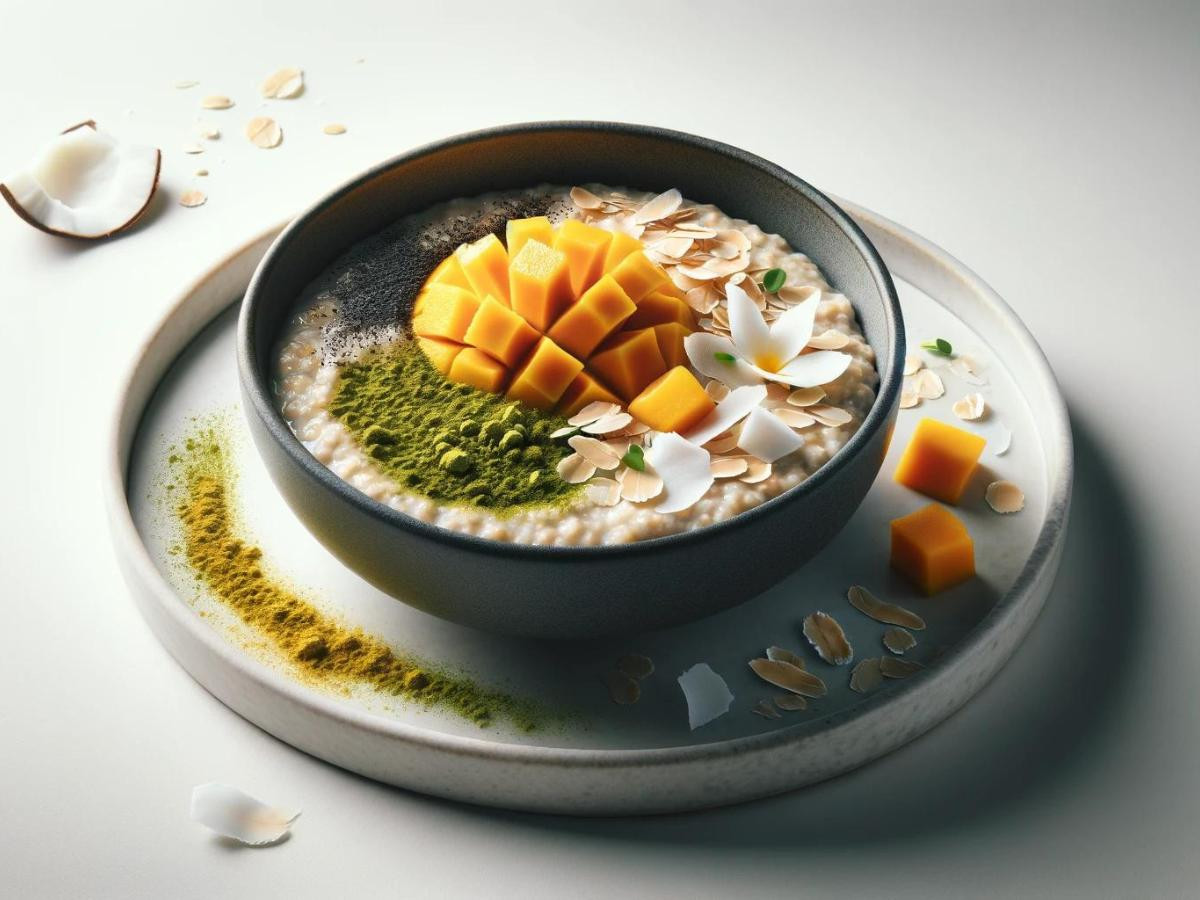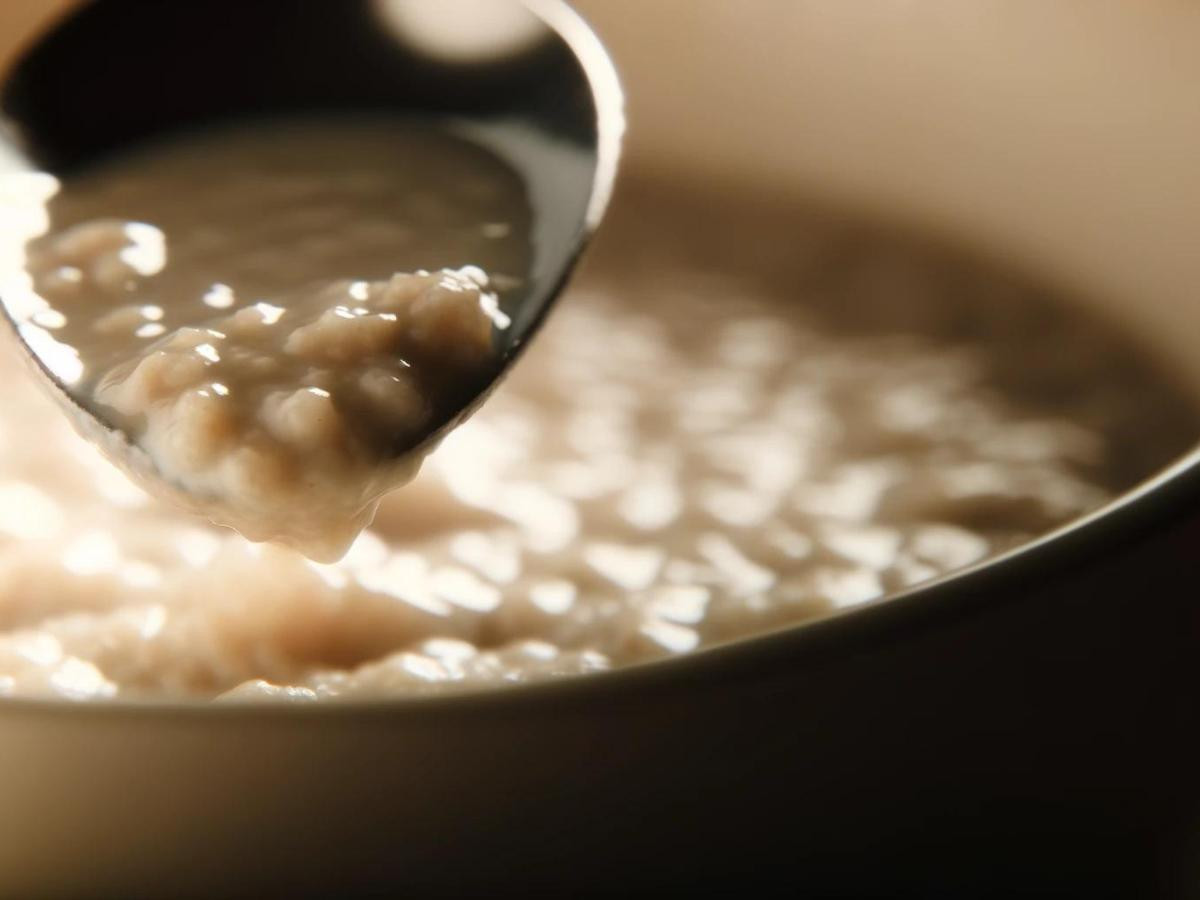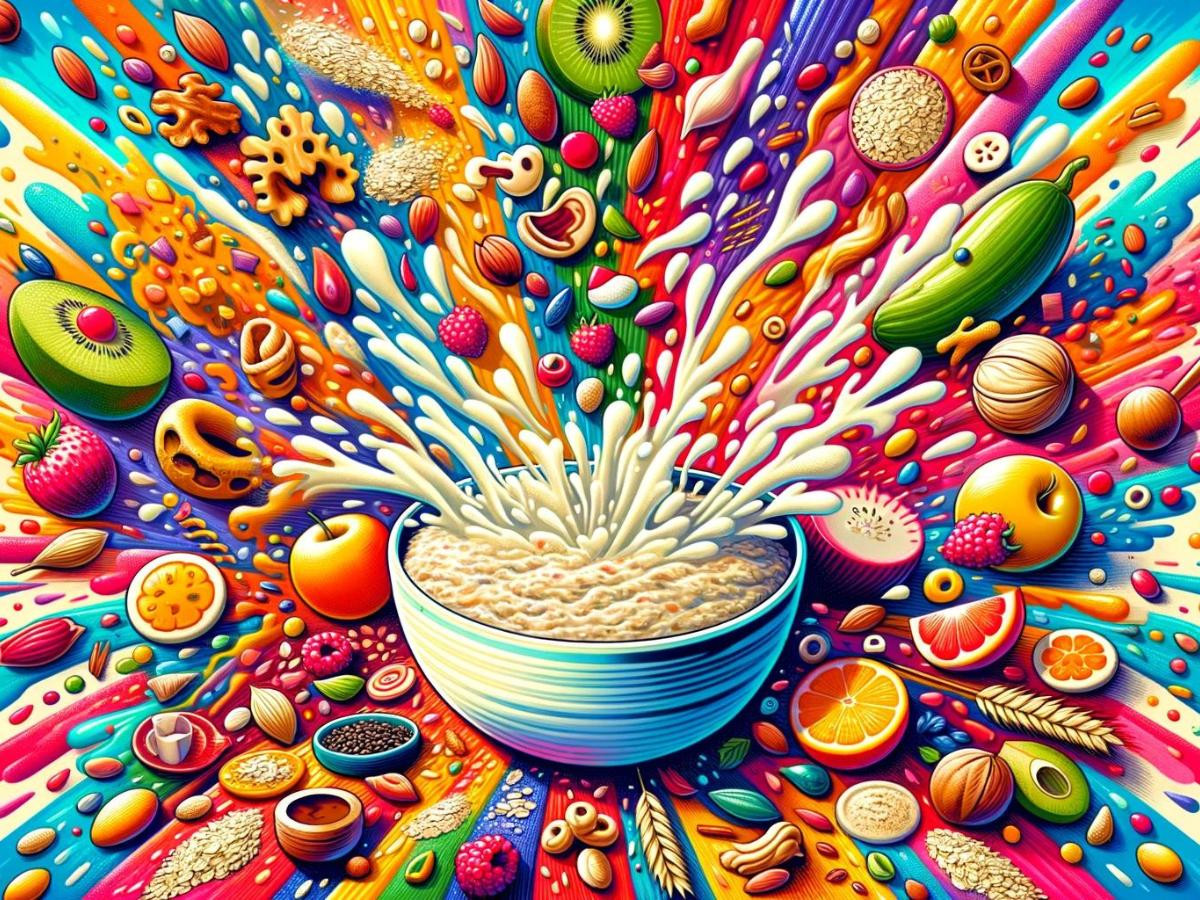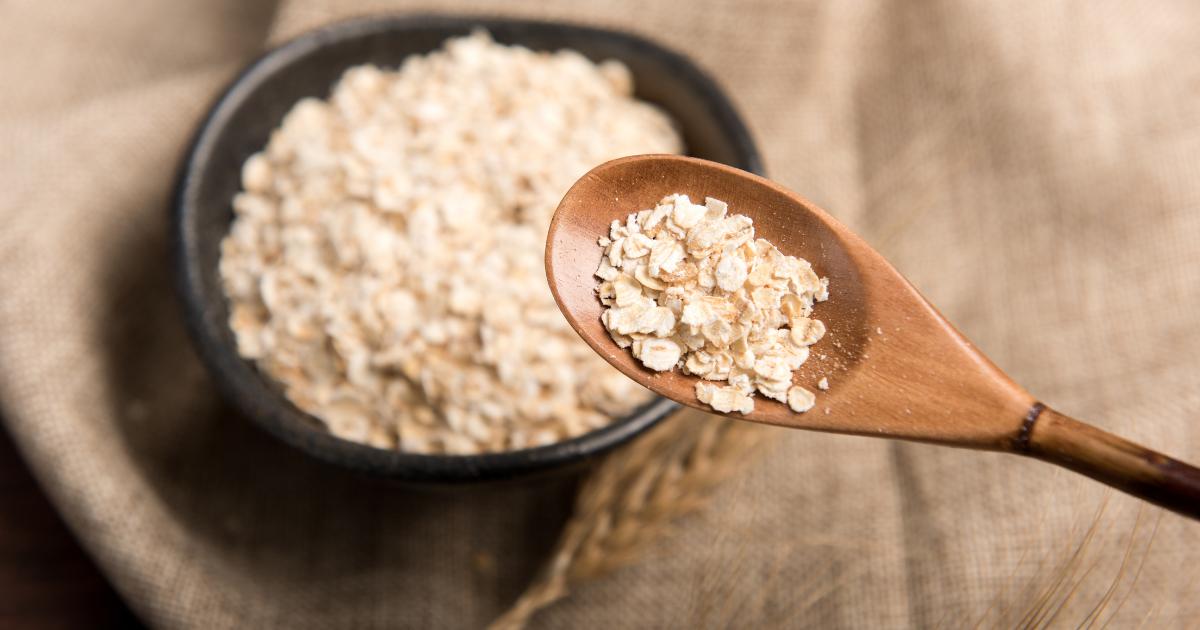The Meaning Behind Eating Oatmeal 24/7
Have you ever found yourself suddenly craving a warm, comforting bowl of oatmeal? You’re not alone. Oatmeal cravings can strike for many reasons, and they’re not just about the taste. Why Am I Craving Oatmeal? It’s a simple, comforting staple in many homes, that holds more secrets to our food cravings than you might think. Let’s dive into 11 reasons why oatmeal might be on your mind.

I Want To Eat Oatmeal All Day, Why?
Have you ever found yourself wandering to the kitchen, opening the cupboard, and reaching for that container of oatmeal? Yeah, me too—more times than I care to admit, actually. It’s funny how something as simple as oatmeal can become such a craving.
Whether it’s the midnight munchies for chocolate or that inexplicable yearning for something salty, I’ve been there. But eating oats? That’s a different ball game. It’s not just about hunger; it’s about what your body asks for.
I remember mornings with my little girls as we concocted oatmeal recipes that were anything but ordinary. With berries, nuts, chocolate chips, cinnamon, and a dash of love, each bowl told a story.
And it got me thinking – why oatmeal? What’s behind this craving that pulls us toward this humble grain?
Well, friends, I took to my kitchen, my family’s stories, and a bit of nutritional sleuthing to find out. I found 11 incredible reasons our bodies lean towards oatmeal, from the deep dietary needs to the simple comforts of tradition.
And yes, there’s even a science bit about our blood sugar and hormonal tides. So, grab a bowl and a spoon—let’s scoop out the reasons behind our oatmeal cravings, one comforting bite at a time.
Table of Contents
Why Am I Craving Oatmeal?
Join me as we explore the top 11 reasons oatmeal might be calling your name. From blood sugar regulation to the need for a comforting routine, we’ll uncover how this humble meal keeps us returning for more. And who knows?
We might discover a few new reasons to love oatmeal along the way, making our next bowl even more satisfying. An oatmeal craving can stem from various reasons, each as unique as the individuals experiencing it. Let’s get to the heart of these cravings and find out why, sometimes, only oatmeal will do.
1. Nutritional Needs

First up on our quest to understand the allure of oatmeal is the powerhouse of nutrition it packs. Oatmeal is more than just a cozy breakfast option; it’s a nutrient-dense hero in the culinary world.
For someone like me, who has seen the inside of countless kitchens and the impact of food on health, the nutritional profile of oatmeal is nothing short of impressive.
Fiber Galore: Oatmeal is a fantastic soluble and insoluble fiber source. Soluble fiber, especially the beta-glucan in oats, can help lower cholesterol levels and is excellent for heart health. Insoluble fiber, on the other hand, keeps the digestive system in tip-top shape, promoting regular bowel movements and preventing constipation.
Rich in Vitamins and Minerals: A bowl of oatmeal is a treasure trove of essential vitamins and minerals. It contains B vitamins for energy, iron for blood health, and zinc for immune function. Magnesium plays a role in over 300 biochemical reactions in the body, including muscle and nerve function.
Antioxidant Powerhouse: Oats are high in antioxidants, particularly avenanthramides, which are almost exclusively found in oats. These compounds help lower blood pressure levels by increasing nitric oxide production, which aids in dilating blood vessels for better blood flow.
Protein Punch: While not as high in protein as some other foods, oatmeal still offers a good amount, making it a more filling breakfast option to help stave off mid-morning snack attacks.
Craving oatmeal might be your body’s way of signaling a need for these vital nutrients. Whether it’s the heart-healthy fibers or the muscle-relaxing magnesium, each spoonful of oatmeal brings you closer to meeting your daily nutritional needs.
In a world where processed foods often take center stage, a craving for something as wholesome as oatmeal is a nudge in the right direction, reminding us of the simple yet profound benefits of whole foods.
2. Energy Boost

Now, let’s shift gears to something that keeps us all running – energy. In the hustle and bustle of daily life, finding a sustainable energy source in your diet is like striking gold.
This is where oatmeal shines brightly as a morning (or anytime) hero. Its complex carbohydrates are the treasure trove for anyone looking to sustain their energy levels without the dreaded crash.
Complex Carbohydrates for the Win: Oatmeal is rich in complex carbohydrates that break down slowly in the body. This slow digestion process gradually releases energy, keeping you powered for longer periods. Unlike the quick spike and fall you might get from sugary breakfast options, oatmeal provides a steady stream of fuel.
Stabilizes Blood Sugar: Oatmeal helps maintain stable blood sugar levels thanks to its low glycemic index. This is crucial for preventing those mid-morning energy crashes that have you reaching for the nearest snack. Stable blood sugar equals stable energy levels, making oatmeal an excellent choice for anyone, especially those with a busy lifestyle or managing conditions like diabetes.
Keeps You Full and Focused: The feeling of fullness (thanks again to the fiber) also contributes to sustained energy. You can maintain better focus and productivity when you’re not distracted by hunger pangs. For someone like me, juggling a career and a bustling household, staying energized and focused is key to keeping the day on track.
Incorporating oatmeal into your morning routine or as a midday pick-me-up can transform your day. It’s not just about the calories but the quality of those calories.
The energy from oatmeal is like a slow-burning candle, providing a consistent, gentle glow that keeps you going, whether prepping for a busy service in the kitchen or enjoying a weekend soccer game with the kids.
3. Blood Sugar Levels

Diving into our third reason, we encounter a crucial aspect of health that oatmeal directly impacts: blood sugar levels. This is particularly personal for me, as managing blood sugar is a daily consideration in my family, given our history of diabetes. The way oatmeal interacts with our body’s blood sugar regulation is nothing short of a balancing act that could benefit many, regardless of their health status.
Low Glycemic Index (GI): Oatmeal has a relatively low GI, meaning it causes a slower rise in blood glucose levels compared to high-GI foods. This slow release is key to preventing the spikes and drops that can lead to energy crashes and, over time, could contribute to insulin resistance.
Beta-Glucan’s Role: The soluble fiber beta-glucan in oats plays a starring role here. By forming a gel-like substance in the gut, it slows down the absorption of carbohydrates into the bloodstream. This moderation keeps blood sugar levels stable, making oatmeal an excellent choice for those concerned about diabetes.
Aiding Insulin Sensitivity: Regular consumption of oats can also help improve insulin sensitivity. This means your body is better at using the insulin it produces to regulate blood sugar levels, a critical factor in preventing and managing type 2 diabetes.
A Strategic Choice for Snacking: For anyone looking to maintain steady blood sugar levels throughout the day, incorporating oatmeal into meals or as a snack can be a strategic move. It’s not just about what you eat but how what you eat affects your body’s blood sugar management.
For those of us with a familial predisposition to diabetes, understanding and choosing foods that support blood sugar balance is paramount. Oatmeal is more than just a breakfast option; it’s a tool in our nutritional arsenal to combat the risk of diabetes and its associated conditions.
4. Comfort and Warmth

On to a reason that’s as much about the heart as it is about the stomach: the unparalleled comfort and warmth oatmeal brings. This isn’t just about physical warmth; it’s the soul-soothing comfort from a dish steeped in nostalgia and simplicity.
In the vast landscape of culinary creations, few dishes can claim to be as comforting as a hot bowl of oatmeal on a chilly morning or when you need a little extra TLC.
A Hug in a Bowl: Oatmeal is often called “comfort food” for its ability to offer a warm embrace from the inside out. On days when the world seems a bit too much or when the chill outside seems unyielding, oatmeal serves as a gentle reminder of warmth and well-being. It’s like receiving a hug from someone special; it reassures and comforts without saying a word.
Nostalgia on a Spoon: For many of us, oatmeal is more than just breakfast; it links to cherished memories. Maybe it reminds you of mornings spent with loved ones, laughter shared around the breakfast table, or quiet moments of reflection before starting a busy day. This nostalgic quality can evoke a deep sense of comfort and satisfaction, making us crave oatmeal for its taste and the memories it conjures.
Simplicity and Versatility: There’s something incredibly comforting about oatmeal’s simplicity. It’s a blank canvas that can be dressed up or down, catering to any mood or preference. Whether you like it plain and straightforward or jazzed up with fruits, nuts, and spices, oatmeal accommodates without fuss. This versatility adds to its comfort factor, making it a reliable go-to in an often overly complicated world.
The comfort and warmth of oatmeal are akin to returning home after a long day—it’s familiar, welcoming, and always just what you need. Oatmeal has been a constant source of comfort and joy in my culinary adventures and at home with my family.
5. Pregnancy Cravings

Pregnancy is a journey filled with unexpected twists and turns, especially when it comes to cravings. Oatmeal stands out for many soon-to-be moms among the myriad cravings that can strike.
There’s more to these cravings than just a whimsical desire for something warm and comforting; it’s a blend of nutritional need, texture preference, and the body’s intuitive push towards health.
Nutritional Powerhouse for Two: The body’s nutritional needs skyrocket during pregnancy. Oatmeal, packed with essential nutrients like iron, fiber, and B vitamins, offers a substantial nutritional boost. Iron supports increased blood volume, while B vitamins are crucial for the baby’s brain development. The fiber in oatmeal aids digestion, helping alleviate common pregnancy woes like constipation.
Texture Satisfaction: Pregnancy can also bring about a heightened sensitivity to textures. The creamy, smooth consistency of cooked oatmeal is easy on the palate and can also be comforting to those experiencing morning sickness or food aversions. Its versatility allows it to be tailored to satisfy specific cravings, whether one leans towards sweet, with fruits and honey, or savory, with nuts and seeds.
Emotional Comfort: Beyond the physical and nutritional aspects, oatmeal’s emotional comfort cannot be understated. Preparing and enjoying a bowl of oatmeal can be a soothing ritual for many pregnant women, offering peace and contentment amidst the whirlwind of pregnancy.
In my experience, both in the kitchen and at home, understanding the depth of pregnancy cravings has been key to nurturing both body and spirit.
Oatmeal embodies this blend of nutritional richness and emotional comfort, making it a go-to choice for many expecting mothers.
6. Pre-Menstrual Syndrome (PMS)

Navigating the ups and downs of Pre-Menstrual Syndrome (PMS) is a familiar monthly ritual for many. Among the myriad of symptoms, from mood swings to physical discomfort, comes an array of cravings.
Some people crave oatmeal, and it’s not by accident. This craving is rooted in the nutritional benefits oatmeal provides and its impact on the emotional and physical symptoms of PMS.
Magnesium and B Vitamins: Oatmeal is a good source of magnesium, a mineral that plays a key role in alleviating PMS symptoms such as cramps, irritability, and fatigue. The B vitamins in oats, particularly B6, have been linked to improving mood and reducing symptoms of depression and anxiety, which can accompany PMS.
Stable Energy and Mood: Oatmeal’s complex carbohydrates help regulate blood sugar levels, which can fluctuate during the pre-menstrual phase. Stable blood sugar levels are crucial for maintaining energy and preventing mood swings, making oatmeal an excellent diet for those pre-period days.
Comforting and Satisfying: Beyond its nutritional profile, oatmeal offers much-needed comfort and satisfaction as a balm for PMS-induced mood dips and cravings. Its warm, soothing nature can be particularly appealing when you’re under the weather or need a gentle pick-me-up.
Incorporating oatmeal into your diet during the pre-menstrual phase can be a simple yet effective strategy for managing PMS symptoms. Its blend of essential nutrients and its comforting nature makes oatmeal a powerful ally in the quest for balance and well-being during this often turbulent time.
7. Digestive Health

Turning our attention to the inner workings of our digestive system reveals another compelling reason why oatmeal cravings might not be so random after all. Oatmeal has substantial digestive health benefits, making it a staple for a hearty breakfast and a key player in maintaining a happy gut.
Fiber-Rich Friend: Oatmeal is loaded with fiber, essential for good digestive health. The soluble fiber in oatmeal, particularly beta-glucan, absorbs water to help soften stool, making it easier to pass. This can relieve those dealing with constipation or irregular bowel movements.
Prebiotic Potential: Oats’ soluble fiber also acts as a prebiotic, feeding the beneficial bacteria in the gut. A healthy gut flora is crucial for digestion, immune function, and mood regulation. By nurturing this microbiome, oatmeal supports overall digestive wellness.
Gentle on the Gut: Oatmeal can be a soothing choice for those with sensitive stomachs or conditions like Irritable Bowel Syndrome (IBS). Its creamy texture and ease of preparation make it gentle on the digestive system, nourishing without causing distress.
The significance of digestive health in overall well-being cannot be overstated, and incorporating oatmeal into one’s diet is a simple yet effective way to support this vital system.
Whether it’s the high fiber content, prebiotic properties, or gentle nature, oatmeal offers multiple benefits that can help keep the digestive system running smoothly.
8. Weight Management

Diving into another aspect of why oatmeal might be beckoning you, let’s talk about weight management. In a world where diets come and go and weight management can seem like navigating through a maze, oatmeal stands out as a reliable, wholesome choice that can aid when trying to lose weight.
Its role in weight management is multifaceted. It blends nutritional benefits with a satisfying fullness that can curb the temptation to indulge in less healthful options.
Satiety Factor: Oatmeal is incredibly filling, thanks to its high fiber content. This isn’t just any kind of fullness; it’s a slow-burning, sustained sense of satisfaction that helps reduce the likelihood of snacking on high-calorie, low-nutrient foods between meals. The beta-glucan in oatmeal forms a viscous gel-like substance in the gut, delaying stomach emptying and extending the feeling of fullness.
Metabolism Boost: The complex carbohydrates in oatmeal take longer to digest, meaning the body expends more energy (burns more calories) than digesting simple carbs. This slight boost in metabolism can contribute to weight management over time.
Nutrient-Rich, Low-Calorie: Oatmeal offers a wealth of nutrients without packing on a high-calorie count. This makes it an ideal food for those looking to nourish their bodies without overeating. Its balance of carbohydrates, protein, fat, and essential vitamins and minerals supports a healthy diet.
Incorporating oatmeal into a weight management plan isn’t just about cutting calories; it’s about making smarter food choices that offer nutritional value and keep you feeling fuller for longer.
This approach to eating supports sustainable weight management, avoiding the pitfalls of crash diets and fostering a healthier relationship with food.
9. Habit and Routine

Sometimes, the explanation behind our cravings is as straightforward as the power of habit and the comfort found in routine. With its versatility and ease of preparation, oatmeal often becomes a staple in many of our daily routines, turning into a go-to breakfast option that starts the day on a wholesome note. This habitual inclination towards oatmeal can illuminate why some crave it regularly.
Consistency and Comfort: There’s something inherently comforting about starting your day with the same wholesome meal. This consistency can create a sense of stability and comfort in our often chaotic lives. For many, including myself, making oatmeal in the morning is a calming routine that sets a positive tone for the day ahead.
Conditioned Taste Preferences: Our taste preferences can adapt over time based on our eating habits. If oatmeal is a frequent part of your diet, you’re likely to develop a preference for it, leading to regular cravings. This conditioning is a testament to our palates’ adaptability and dietary habits’ role in shaping our food choices.
Positive Reinforcement: When a habit leads to a positive outcome, such as feeling fuller for longer, maintaining stable energy levels, or even just the satisfaction of eating something you enjoy, it reinforces the desire to continue that behavior. Oatmeal, being both nutritious and satisfying, often results in such positive reinforcements, making the craving for it a natural outcome of its regular consumption.
Embracing oatmeal as part of a daily routine isn’t just about fulfilling a habitual craving; it’s about acknowledging the role that consistent, healthful eating habits play in our overall well-being. In the tapestry of life, where change is the only constant, finding solace in the simple act of eating a bowl of oatmeal can be a source of comfort and nourishment.
10. Emotional Eating

Exploring the depths of our oatmeal cravings brings us to a delicate yet profound aspect: emotional eating. Our cravings often transcend hunger, touching the realms of emotion and memory.
With its comforting warmth and simplicity, oatmeal can be a source of solace during times of stress, sadness, or even nostalgic yearning. Understanding this connection can explain why oatmeal might become a craving during emotional highs and lows.
Comfort Food: There’s a reason many consider oatmeal comfort food. Its warm, soothing texture can provide warmth and comfort akin to a culinary hug. During emotional turbulence, a bowl of oatmeal might serve as a gentle reminder of care and comfort, appealing to our need for emotional and physical nourishment.
Nostalgia and Memory: For some, the craving for oatmeal is deeply intertwined with memories of childhood, family, and moments of joy. Making and eating oatmeal can evoke a sense of nostalgia, transporting us back to simpler times. This emotional connection can make oatmeal a particularly appealing choice when seeking comfort from our past.
Stress Relief: Preparing oatmeal itself can be a meditative, stress-relieving activity. The ritualistic aspects of cooking—measuring the oats, stirring the pot, adding your favorite toppings—can serve as a momentary escape from stress, providing a sense of calm and mindfulness.
Embracing oatmeal during emotional eating is not merely about indulging a craving; it’s about recognizing the emotional cues that guide our food choices and the comfort we derive from certain dishes. It’s a reminder that sometimes, the simplest meals can offer the deepest sense of comfort and emotional satisfaction.
11. Texture and Versatility

Our journey through the reasons behind oatmeal cravings brings us to a fascinating finale: the texture and versatility of oatmeal.
This aspect is particularly intriguing because it highlights how our preferences for specific textures and the ability to customize our meals can influence our cravings. With its unique texture and chameleon-like adaptability, oatmeal offers a culinary canvas unlike any other.
The Allure of Texture: The texture of oatmeal can vary widely, from creamy and smooth to hearty and chewy, depending on how it’s prepared. This variability can be incredibly appealing, satisfying various texture preferences. For some, the creamy comfort of a well-cooked oatmeal is unbeatable, while others might crave the chewy, substantial bite of steel-cut oats. This versatility in texture makes oatmeal a frequent craving for those who prioritize mouthfeel in their eating experience.
A Canvas for Creativity: One of oatmeal’s most celebrated qualities is its ability to blend seamlessly with an endless array of toppings and mix-ins. From the sweetness of fresh fruits and honey to the savory depth of nuts and seeds, oatmeal can transform into whatever you crave. This versatility keeps your meals interesting and caters to your nutritional needs and taste preferences, making oatmeal cravings a gateway to creative, satisfying eating.
Nutritional Customization: Beyond taste and texture, oatmeal allows for nutritional customization. Whether adding protein powder for a post-workout meal, flaxseeds for omega-3 fatty acids, or cinnamon for its antioxidant properties, oatmeal can be tailored to meet your dietary goals. This adaptability makes it a powerhouse of nutrition that can be fine-tuned to your body’s needs, further fueling cravings for this wholesome grain.
Oatmeal stands out not just for its nutritional profile or comforting warmth but also for its remarkable ability to adapt to our culinary whims and desires. Its texture and versatility invite experimentation and personalization, making every bowl of oatmeal uniquely reflect individual tastes and needs.
Summary Conclusion
In its simplicity, oatmeal embodies the essence of what food should be: nourishing, comforting, and versatile enough to fit into any meal plan, mood, or preference.
Whether in the professional kitchens of large hotels or the cozy confines of my home kitchen, oatmeal has been a constant companion. It’s been a vehicle for teaching my daughters the value of cooking with whole, fresh ingredients—a lesson in how simple foods can be both delicious and nutritious. It’s been a reminder of the power of food to connect us to our loved ones, memories, and heart desires.
So, the next time you find yourself reaching for that bowl of oatmeal, take a moment to appreciate the complexity behind that simple craving. Whether it’s your body seeking nourishment, your heart looking for comfort, or your creative spirit craving a canvas, oatmeal is there to satisfy on every level.
Embrace your oatmeal cravings as a sign of your body’s wisdom, emotional depth, and culinary curiosity. Let each bowl be a journey, a moment of nourishment, and a celebration of the simple pleasures that make life rich.
Craving oatmeal is a testament to its enduring appeal and the many ways it can enrich our lives, not just at the breakfast table but as a staple of a wholesome, balanced diet. Here’s to oatmeal, a humble hero in the food world, and to honor our cravings as a path to deeper nourishment and satisfaction.
FAQ and Additional Information:
Why you shouldn’t eat oatmeal every day?
Eating too much oatmeal daily can be a healthy habit for most people, given its rich nutritional profile. However, there are a few reasons why diversifying your diet beyond just oatmeal is beneficial:
Nutritional Variety: While oatmeal is nutritious, relying solely on it can lead to nutritional gaps. A varied diet ensures a broad spectrum of vitamins, minerals, and antioxidants in foods like vegetables, fruits, proteins, and fats.
Potential for Increased Sugar Intake: Many people enhance the flavor of oatmeal with sweeteners, dried fruits, or flavored packets, which can inadvertently increase daily sugar intake. Variety helps manage and distribute sugar consumption more evenly.
Digestive Tolerance: Some individuals may find the high fiber content in oatmeal challenging to digest if consumed in large amounts daily, potentially leading to gastrointestinal discomfort such as bloating or gas.
Food Sensitivities: While overnight oats are naturally gluten-free for those with gluten sensitivities or celiac disease, they’re often processed in facilities that handle gluten-containing grains, posing a risk of cross-contamination unless specifically labeled gluten-free.
What happens to your body when you start eating oatmeal?
When you start incorporating instant oatmeal into your diet, several positive changes can occur in your body thanks to its rich nutritional profile:
Improved Digestive Health: Steel-cut oatmeal or rolled oats’ high fiber content aids digestion, helping to regulate bowel movements and prevent constipation. The soluble fiber, beta-glucan, also supports a healthy gut microbiome.
Lower Cholesterol Levels: Beta-glucan has been shown to reduce LDL (“bad”) cholesterol levels, improving heart health by reducing the risk of heart disease.
Stable Blood Sugar Levels: Oatmeal’s complex carbohydrates are digested slowly, helping to maintain stable blood sugar levels. This is especially beneficial for individuals with diabetes or those looking to manage their blood sugar.
Enhanced Satiety and Weight Management: Oatmeal is very filling, which can help reduce overall calorie intake by keeping you satisfied for extended periods. This can be advantageous for weight management or weight loss.
Nutritional Benefits: Oatmeal provides essential nutrients, including vitamins, minerals, and antioxidants. Regular consumption can contribute to overall nutritional well-being, supporting bone health, immune function, and more.
Improved Energy Levels: Oatmeal’s slow-release carbohydrates provide a steady energy source, avoiding spikes and crashes in blood sugar, leading to more consistent energy levels throughout the day.
Why do I like eating dry oatmeal?
Eating dry oatmeal appeals to some people for several reasons:
Texture and Convenience: Dry oatmeal offers a crunchy texture that can pleasantly contrast with the usual creamy consistency, like almond butter when cooked. It’s also convenient, requiring no preparation time, making it an easy, on-the-go snack.
Flavor Intensity: The flavors of dry oatmeal and any included fresh fruit or nuts are more concentrated when not diluted by cooking. This intensity can make the oatmeal more appealing to those who enjoy stronger tastes.
Nutritional Content: Eating oatmeal dry means consuming it in whole form, ensuring you get all the fiber, vitamins, and minerals without any potential loss from cooking. This can be particularly appealing for those focused on maximizing their nutrient intake.
Satiety: The high fiber content in oatmeal can help you feel full, even when consumed dry. This makes it a satisfying snack that can help curb hunger and prevent overeating later.
Some people find dry oatmeal’s unique texture and convenience perfect for their snack preferences and lifestyle. However, chewing dry oatmeal thoroughly to aid digestion is essential, and you should consider soaking or cooking it to vary your intake and ensure a balanced diet.








One Comment